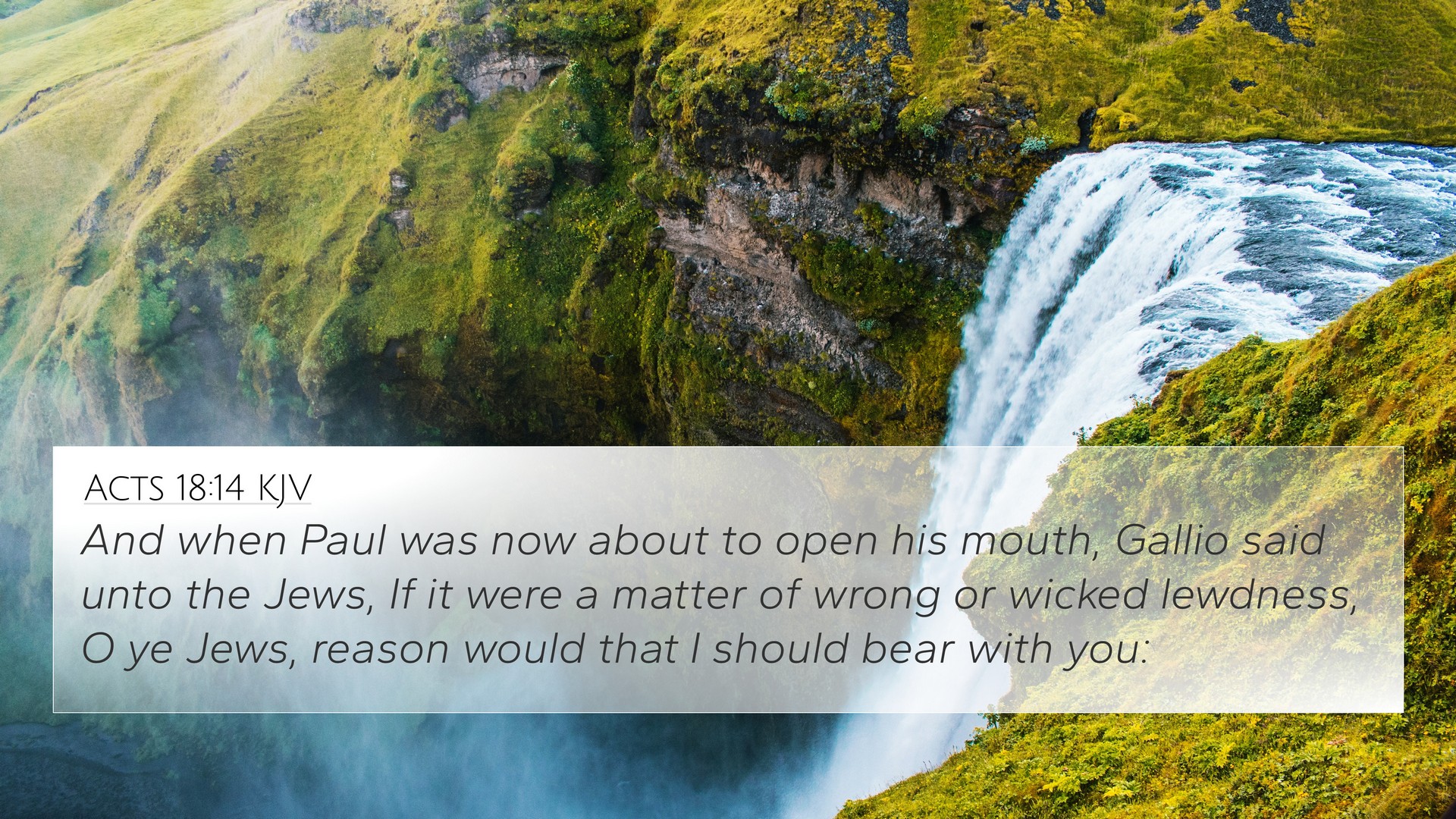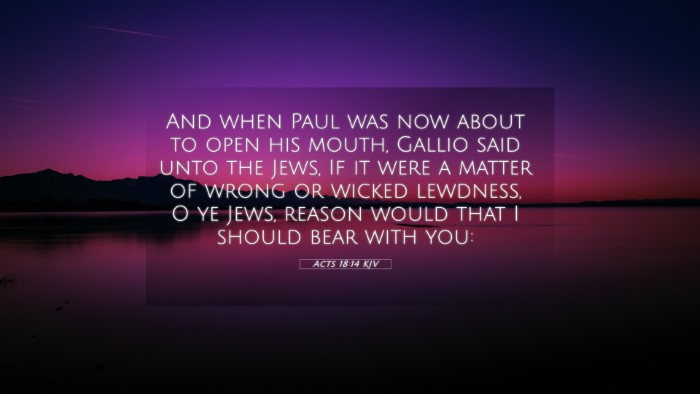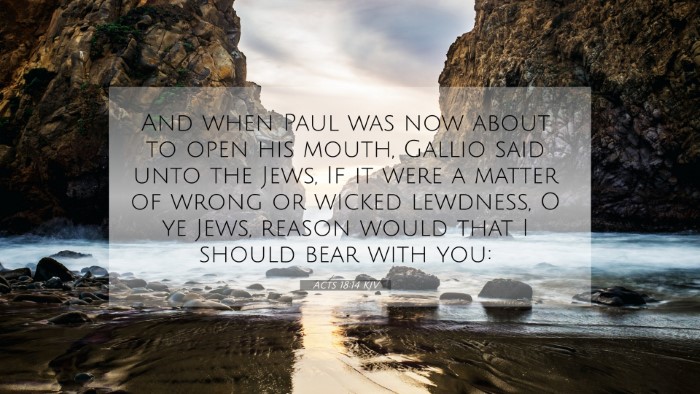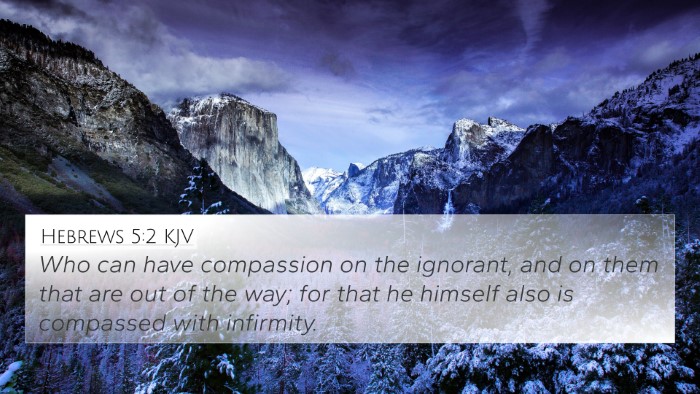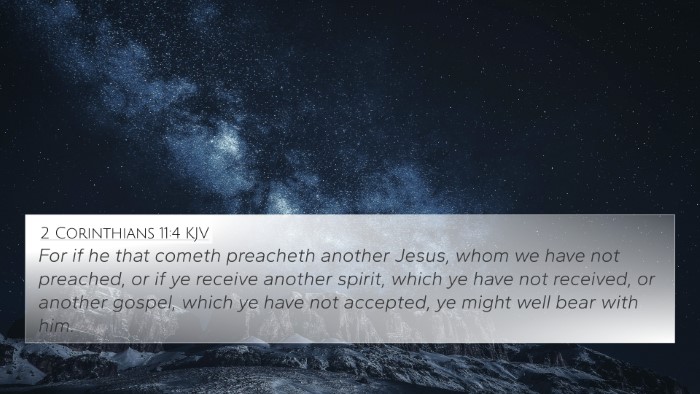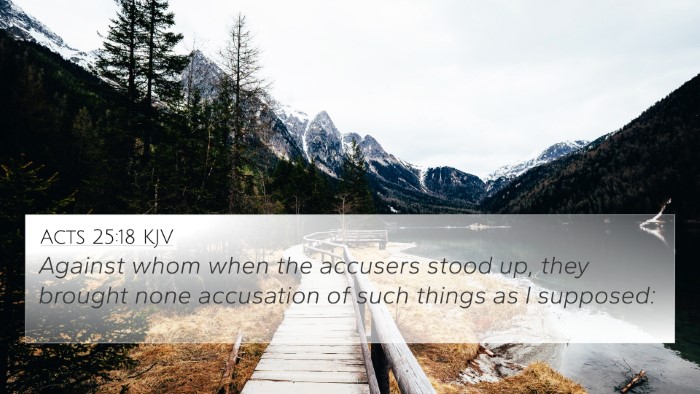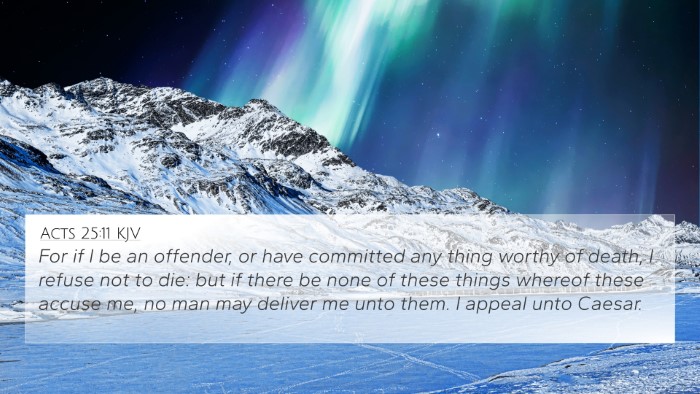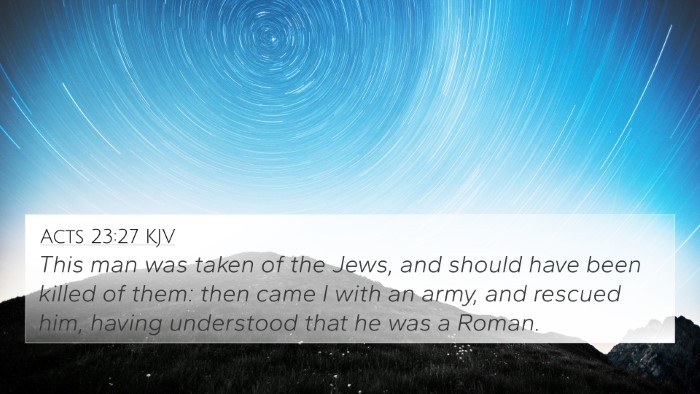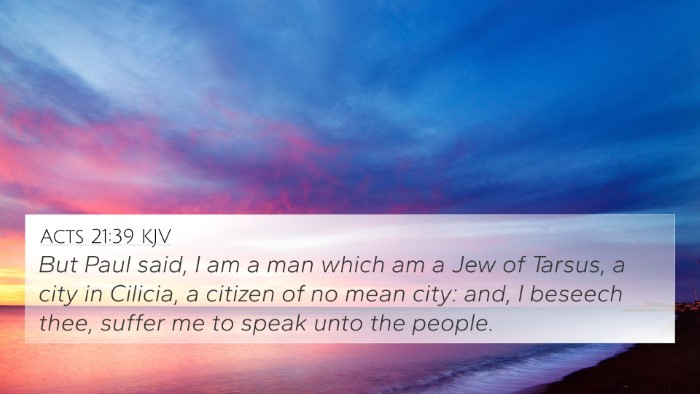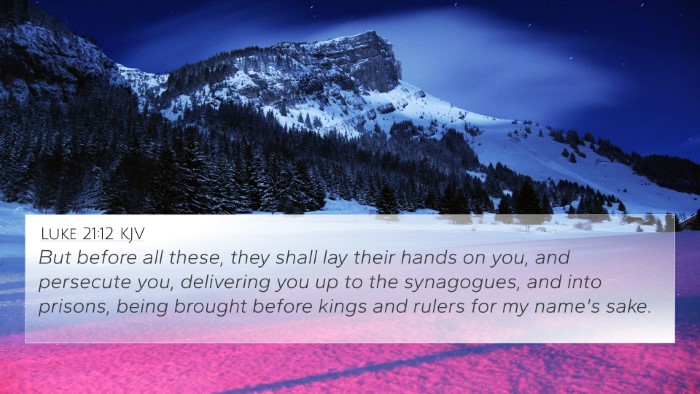Meaning and Insights of Acts 18:14
Acts 18:14 states: "And when Paul was now about to open his mouth, Gallio said unto the Jews, If it were a matter of wrong or wicked lewdness, O ye Jews, reason would that I should bear with you." This verse occurs in the context of Paul's ministry in Corinth and highlights the judicial authority of Gallio, the Roman proconsul, as well as shedding light on the treatment of Christian preaching in relation to Roman law.
Contextual Overview
Understanding Acts 18:14 requires an integration of the socio-political context in which the Apostle Paul operated. The apostolic mission faced opposition, and this encounter with Gallio exemplifies how secular authorities viewed the emerging Christian faith.
Commentary Insights
-
Matthew Henry:
Henry emphasizes that Paul’s readiness to speak indicates his commitment to the message of Christ. However, Gallio's declaration reflects a significant standpoint; it suggests that civil authorities sought to distinguish between legitimate religious discourse and acts considered as criminal behavior. This distinction is essential in understanding how early Christians navigated their faith in a complex legal landscape.
-
Albert Barnes:
Barnes provides insight into Gallio's character and the implications of his statement. Gallio’s indifference to the religious disputes among the Jews demonstrates a broader perspective of Roman law prioritizing public order over religious differences. This permissiveness allowed Christianity to flourish in a setting that otherwise might have been antagonistic.
-
Adam Clarke:
Clarke notes that Gallio’s apathy towards the accusations against Paul reveals a significant point: Christianity was not inherently a criminal act within the Roman legal framework. This moment signifies a pivotal point for the spread of the Gospel, as the authorities’ decision not to intervene laid the groundwork for the establishment of Christian communities.
Thematic Connections and Cross-References
This verse exemplifies significant themes of authority, religious liberty, and the interaction between divine mission and secular governance. Here are some relevant cross-references:
- Acts 4:18-20 - The apostles’ response to the Jewish leaders reflects a similar defiance to restrict the spread of the Gospel.
- Acts 5:29 - The principle of obeying God rather than men is echoed here, as it pertains to Paul’s mission in light of opposition.
- Romans 13:1-7 - This passage speaks about submission to governing authorities, further connecting with the themes present in Acts 18 concerning the role of civil power.
- 1 Peter 2:13-17 - Peter’s exhortation to submit to human authorities captures the essence of Christians’ relationship with the state.
- Acts 17:6-7 - The portrayal of Paul and his companions as those who "turned the world upside down" presents a contrast to the complacency of figures like Gallio.
- John 18:36 - Jesus’ statement about His Kingdom not being of this world also speaks to the nature of Christian authority and its distinction from earthly governance.
- Philippians 1:27-30 - Paul’s encouragement to stand firm in one spirit amidst opposition ties back to the situations described in Acts.
Understanding Inter-Biblical Dialogue
The juxtaposition of events in Acts 18:14 with teachings throughout the Pauline letters highlights a thematic dialogue that conveys deeper understanding. The authorities' response to Paul in Corinth serves as a prototype for interpreting how early Christians received both persecution and protection.
Conclusion
The examination of Acts 18:14, as illuminated through the contributions of these commentaries, underscores the dynamic interplay between faith and governance. It encourages believers to recognize their standing in the face of worldly judgment while remaining steadfast in their mission. Furthermore, the interconnections and themes present in this passage invite further exploration of Biblical texts through effective cross-referencing, enriching one's understanding of the Scriptures.
